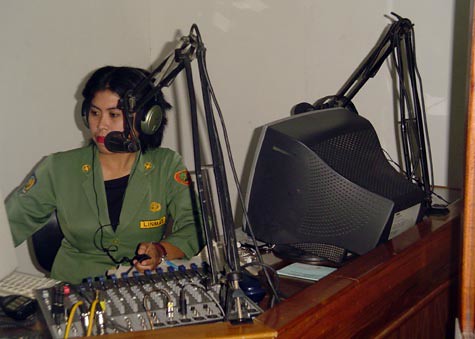Farmers in some of the country’s least developed provinces now have instant access to pricing and market information through a new telecenter initiative developed by the agriculture ministry, Intel and UNDP.The Economist, on the other hand, was more interested in mobile phones, both on political issues,
Chroniclers of cellular people power identify two big landmarks: the rallies that toppled President Joseph Estrada of the Philippines in 2001, and South Korea's presidential election a year later, when text messages among the young brought a surge of support for President Roh Moo-hyun.and economic issues:
About half a million South Africans now use their mobile phones as a bank. Besides sending money to relatives and paying for goods, they can check balances, buy mobile airtime and settle utility bills. Traditional banks offer mobile banking as an added service to existing customers, most of whom are quite well off. But [some banks] are chasing another market: the 16m South Africans, over half of the adult population, with no bank account. Significantly, 30% of these people do have mobile phones.The Office of Data and Information in Sinjai, South Sulawesi, on the other hand, is more interested in the power of interactive radio broadcasting.
 By facilitating a two-way information flow, the head of the office, Andi Grandyanto Asapa, enables checks and balances between the people and the government.
By facilitating a two-way information flow, the head of the office, Andi Grandyanto Asapa, enables checks and balances between the people and the government.His public radio "Sinjai Bersatu" receives from the people at least 40 phone calls and 100 SMS per day, most about complaints and suggestions for the government. Pak Grandyanto's staff then types those messages and forwards them to the district head (Bupati). Later, his reporters go to the field to check whether the government has handled the reported complaints.
 technorati tags: ICT-for-development
technorati tags: ICT-for-development
No comments:
Post a Comment